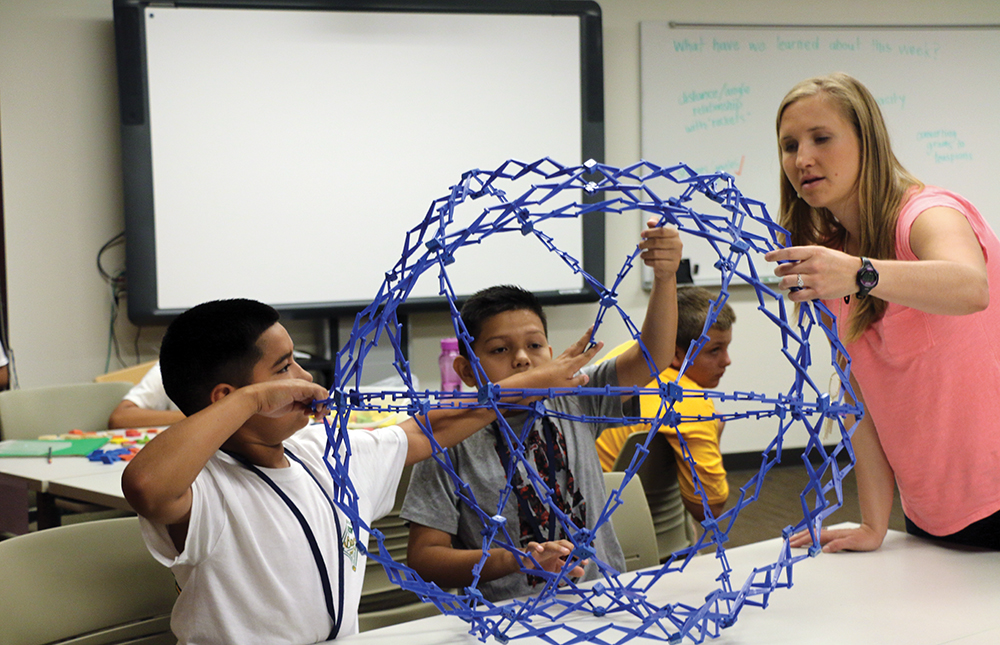Promises Realized
Dr. Susan Johnsen, professor of Educational Psychology, had a dream — almost two decades ago — of extending a School of Education summer program to benefit students from all backgrounds. New research about the program shows tangible evidence of the advantages to low-income students enrolled in that program.
The SOE’s University for Young People — a three-week summer day program of enrichment classes for gifted and talented students — launched more than 30 years ago. In 1999 it expanded to include students who could not afford the tuition fees.
Dubbed “Project Promise” and supported by a City of Waco Community Development Block Grant, the program aims to increase readiness and interest in pursuing higher education. Project Promise students join other students in the classes offered on Baylor’s campus for grades 4-12.
Project Promise Alumni
100% graduated high school
90% attended higher education
53% attended 4-year university
70% remain in Waco
11% plan to return to Waco
11% "may" return to Waco
SOE researchers recently looked at the long-term effects and identified key components to Project Promise’s success that could be replicated by new programs.
“Through the research, we learned that we are the only program like this in the nation for low-income kids,” Johnsen said. “And because of our longevity, we could really look at long-term effects.”
Lead researcher Corina Kaul, MA ’14, a doctoral student in Educational Psychology, conducted a 2014 survey of former Project Promise students who had participated for at least three years; they were then 18-28 years old. With 89 respondents, the survey yielded rich results that Kaul described as “jaw dropping.” She said, “Not only did 100 percent of the students successfully complete high school, compared with 68 percent of a national sample, but 90 percent subsequently attended postsecondary education.”
In several articles, Kaul and Johnsen — along with Dr. Mary Witte, senior lecturer in Curriculum & Instruction and UYP director for 15 years, and Dr. Terrill Saxon, professor and chair of Educational Psychology — identified three key components to the success of Project Promise students.
First, UYP classes focus on courses that align with student interest, including options in STEM fields, fine arts, liberal arts and life skills.
“We tried to put in a lot of the arts and other topics that they would have little opportunity to experience,” Johnsen said. “It opened up a whole new realm of learning opportunities for Project Promise students.”
Secondly, Project Promise reached out to parents and families, inviting them to meetings and observations to learn about higher education and the importance of encouraging high expectations for their children. Also, as openings occurred, siblings were given enrollment priority.
Lastly, the program organized students into cohorts of 10 or 11 similarly aged peers under the guidance of a mentor. The cohorts attend classes together, eat lunch together, and engage in small-group conversations. Mentors, who are undergraduate and graduate students in the School of Education, serve as role models, encouraging aspirations to higher education. These peer and mentor relationships were revealed to be significant in the research.
“Interestingly, Project Promise participants indicated that it was not the courses, but the relationships with peers, instructors and mentors that had the strongest impact,” Kaul said. “High expectations from these people motivated academic achievement.”
